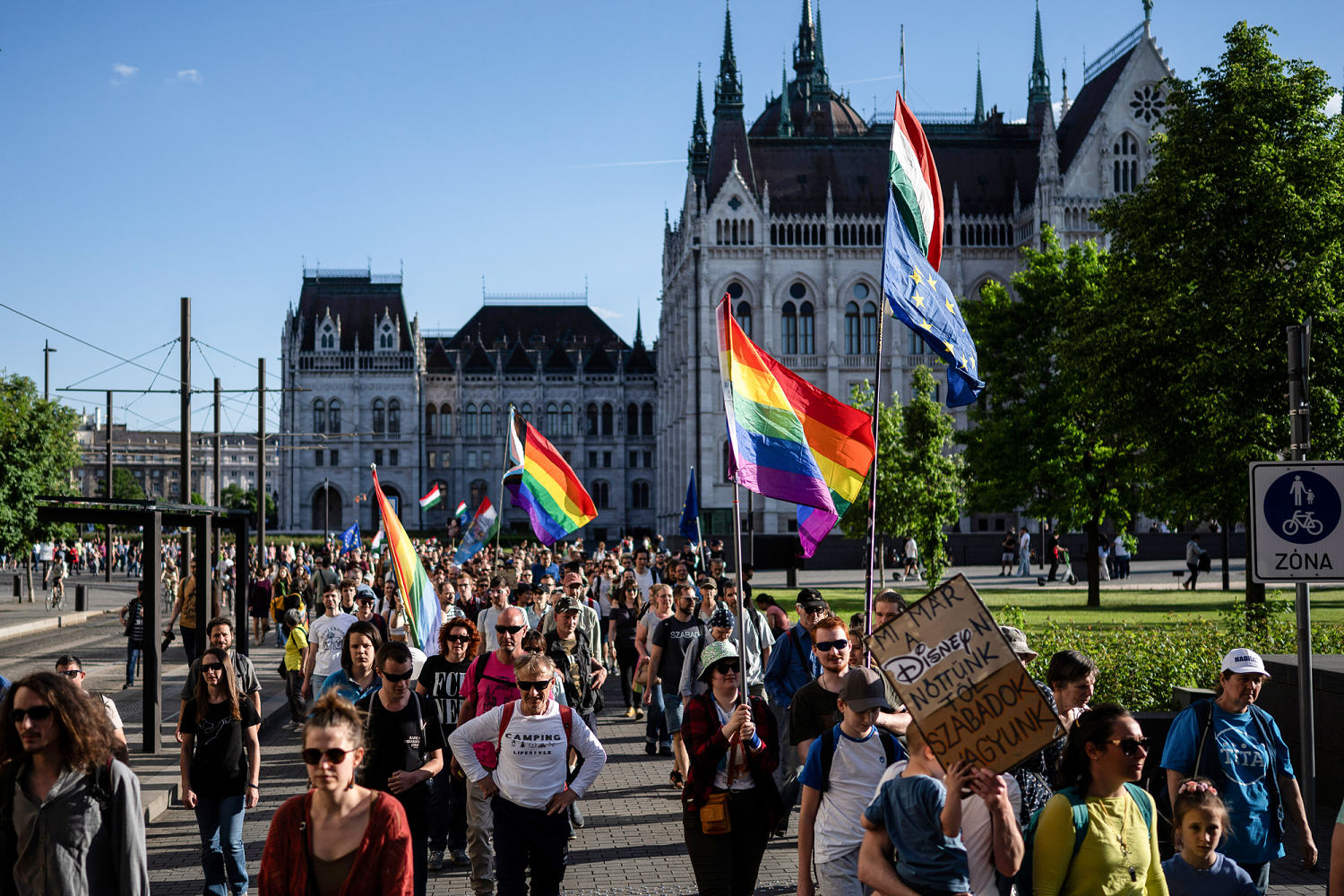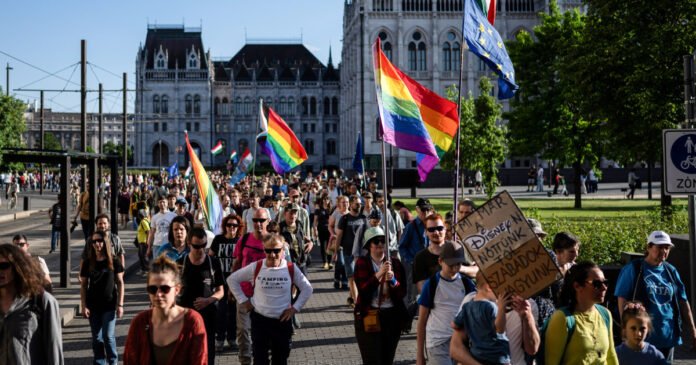
BUDAPEST — Britain, France and Germany and 30 other countries expressed support on Monday for Hungary’s LGBTQ community and a Budapest Pride march on June 28, which was banned by police after the government denounced it as potentially harmful to children.
However the U.S., whose President Donald Trump shares Hungarian Prime Minister Viktor Orban’s suspicion of efforts to promote diversity and transgender rights, was not a signatory of a statement by the countries’ embassies backing the march.
Parliament, in which Orban’s Fidesz party has a majority, passed a law in March that created a legal basis for police to ban Pride marches of the LGBTQ community on the grounds that protecting children should supersede the right to assemble.
Critics see the move to ban Pride as part of a wider crackdown on democratic freedoms ahead of a general election next year when Orban will face a strong opposition challenger, seen by some recent opinion polls as pulling ahead.
Orban’s government promotes a strongly Christian-conservative agenda, and Fidesz has been trying to cater to core conservative voters mostly in the countryside ahead of the elections.
Passage of the new law allowed police to ban the 30th Pride march last week, but Budapest’s liberal mayor and the organizers of the event said the march will be held despite the police ban on June 28.
“On the 30th occasion of the Budapest Pride Festival, we, the undersigned embassies and cultural institutes, reaffirm our support for the lesbian, gay, bisexual, transgender, intersex and queer (LGBTIQ+) persons in Hungary and around the world,” the embassies’ statement said.
The statement said the Budapest Pride March “has been a symbol of resilience and progress, reflecting the vital role of LGBTIQ+ persons in the further development of democracy.”
Orban, in power since 2010 in the EU member Central European country, portrays himself as defending family values and said in February that organizers should not even bother organizing Pride in Budapest this year.





